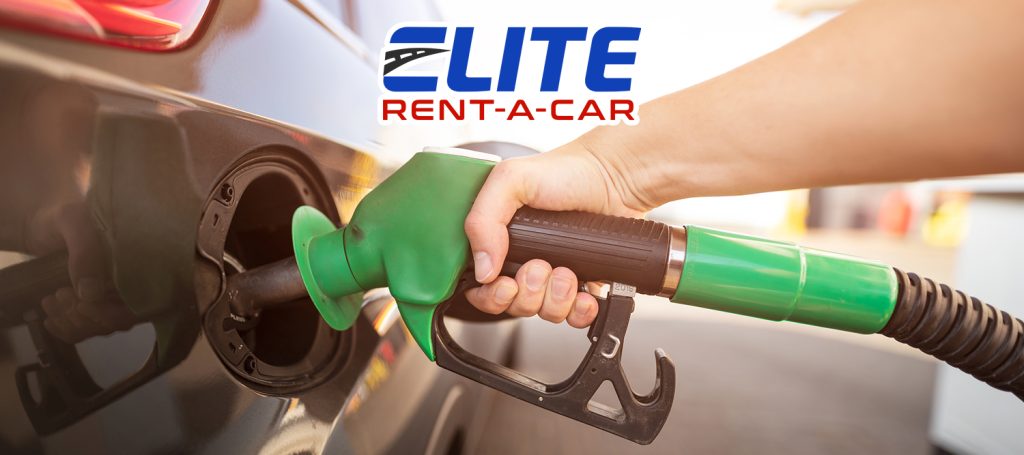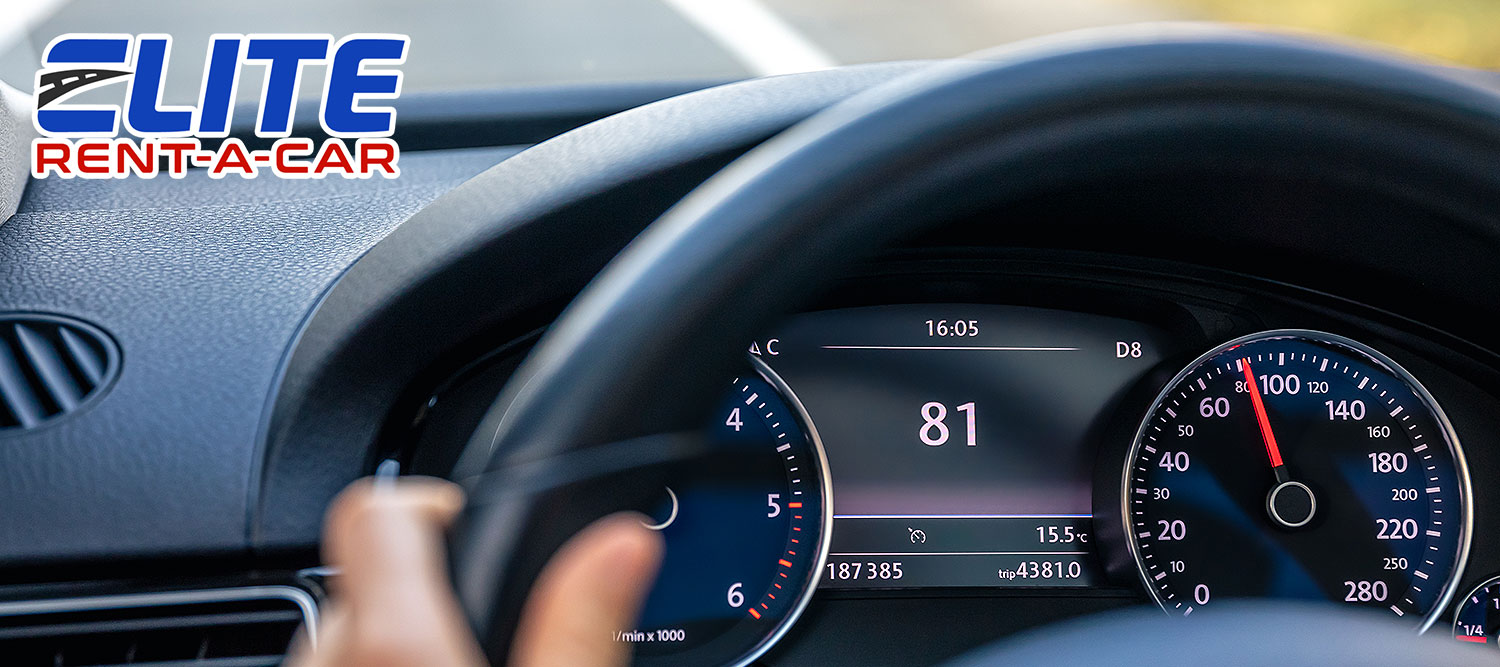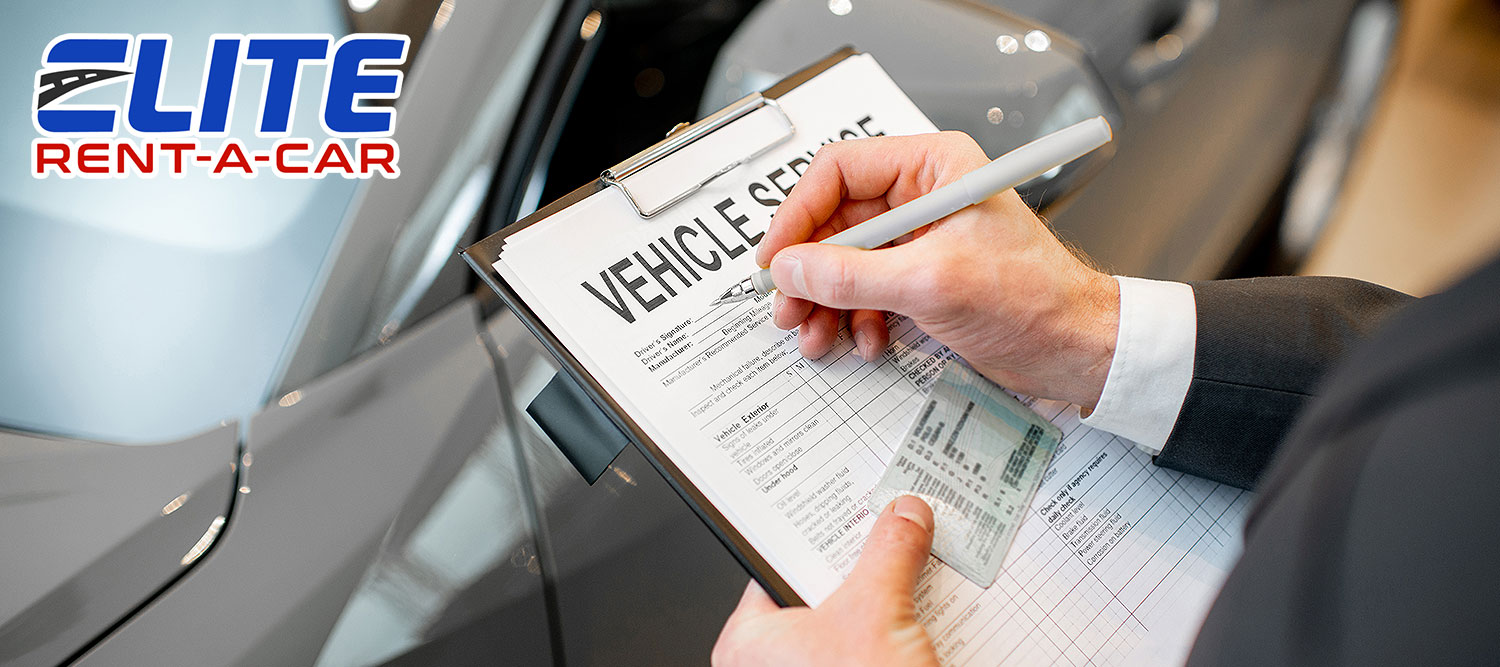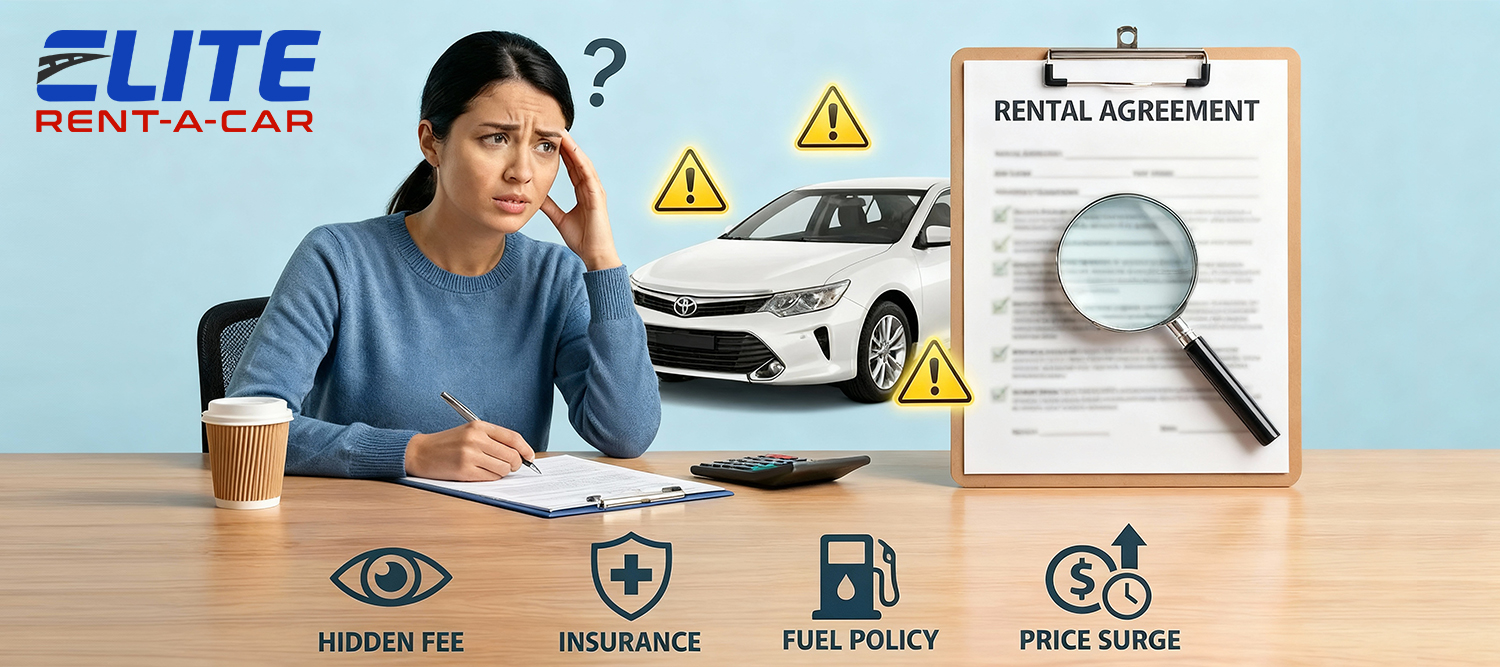When you rent a car, it’s important to understand the fuel policy. This policy tells you how to handle the fuel in the car during your rental. Knowing the fuel policy can help you avoid extra charges and make your trip smoother.
What Is a Fuel Policy?
A fuel policy is an agreement between you and the car rental company about how much fuel should be in the car when you pick it up and when you return it. Different companies may have different fuel policies.
Common fuel policies include:
- Full-to-Full: You get the car with a full tank and return it full.
- Prepaid Fuel: You pay for a full tank at the start and return the car empty.
- Same-to-Same: You return the car with the same amount of fuel it had when you picked it up.
Understanding these policies helps you choose the best option for your trip and budget.
Why It Matters
Choosing the right fuel policy can save you money. For example, with a Full-to-Full policy, you only pay for the fuel you use. But if you forget to refill the tank, the rental company may charge you a high price for the missing fuel.
With a Prepaid Fuel option, you pay for a full tank upfront. This can be convenient if you’re in a hurry, but you won’t get a refund for any unused fuel.
By understanding the fuel policy, you can avoid unexpected fees and make your car rental experience better.
Types of Car Rental Fuel Policies
When you rent a car, understanding the fuel policy is important. Different companies offer various fuel policies. Let’s look at the common ones:
1. Full-to-Full
- What it is: You receive the car with a full tank and must return it full.
- Pros: You pay only for the fuel you use.
- Cons: If you don’t refill the tank, the rental company may charge you a higher price for the missing fuel.
This policy is often the most cost-effective if you can refuel before returning the car.
2. Prepaid Fuel (Full-to-Empty)
- What it is: You pay for a full tank at the start and can return the car with any fuel level.
- Pros: Convenient if you’re in a hurry or unsure about refueling options.
- Cons: No refunds for unused fuel; you might pay more than local gas prices.
This option offers convenience but may not be economical if you don’t use the full tank.
3. Same-to-Same
- What it is: You receive the car with a certain fuel level and must return it with the same level.
- Pros: Flexibility in fuel levels.
- Cons: Estimating the exact fuel level can be challenging; potential for disputes.
This policy requires careful attention to the fuel gauge to avoid extra charges.
4. Pay-as-You-Go
- What it is: You pay for the fuel you use, often at the rental company’s rates.
- Pros: No need to refuel before returning the car.
- Cons: Rental companies may charge higher rates per liter/gallon; additional service fees may apply.
This option can be convenient but may result in higher costs.
Understanding these fuel policies helps you choose the best option for your trip and budget.
Factors to Consider When Choosing a Car Rental Fuel Policy
Selecting the right fuel policy when renting a car is crucial for managing costs and ensuring convenience. Here are key factors to help you make an informed decision:
1. Trip Length and Distance
- Short Trips: If you’re planning a brief journey, a Full-to-Full policy is often the most economical. You pay only for the fuel you use and can refill at local gas stations, which typically offer better prices than rental companies.
- Long Trips: For extended travels, a Prepaid Fuel option might be convenient, allowing you to return the car without refueling. However, be aware that rental companies may charge higher rates for fuel than local stations.
2. Time Constraints
- Tight Schedules: If you’re on a strict timeline or have early/late flights, opting for Prepaid Fuel can save time by eliminating the need to find a gas station before returning the car.
- Flexible Schedules: With more time, a Full-to-Full policy allows you to refuel at your convenience, potentially saving money.
3. Budget Considerations
- Cost-Conscious Travelers: A Full-to-Full policy is generally the most cost-effective, as you control where and how much you pay for fuel.
- Convenience Over Cost: If convenience is a priority and you’re willing to pay extra, Prepaid Fuel or Pay-as-You-Go options offer flexibility but often at a higher price per gallon/liter.
4. Availability of Fuel Stations
- Urban Areas: In cities with numerous gas stations, refueling before return is typically easy, making Full-to-Full policies practical.
- Remote Locations: If gas stations are scarce near your drop-off point, Prepaid Fuel can prevent the stress of searching for fuel in unfamiliar areas.
5. Rental Company Policies
- Company Variations: Different rental companies have varying fuel policies. For instance, Enterprise, Hertz, Avis, and Budget may offer different options and rates. Always review the specific terms and conditions of your chosen provider.
6. Vehicle Type
- Fuel Efficiency: Consider the fuel efficiency of the rental car. If you’re driving a fuel-efficient vehicle, you might not use a full tank, making Prepaid Fuel less economical.
- Fuel Type: Ensure you know whether the car uses gasoline, diesel, or a hybrid/electric, as this affects refueling options and costs.
7. Documentation and Proof
- Receipts: Keep fuel receipts as proof of refueling, especially under a Full-to-Full policy, to avoid disputes over fuel levels upon return.
- Photos: Take pictures of the fuel gauge at pickup and drop-off to document fuel levels accurately.
By considering these factors, you can choose a fuel policy that aligns with your travel plans, budget, and preferences, ensuring a smoother rental experience.
Potential Fees and Charges in Car Rental Fuel Policies
Understanding the fuel policy of your car rental is crucial to avoid unexpected fees. Different policies come with various charges that can impact your overall rental cost. Here’s a breakdown:
Refueling Charges
- Full-to-Full Policy: If you return the car without refueling to a full tank, the rental company will charge you for the missing fuel. This charge is often higher than local gas station prices. For instance, if you forget to refill, you might be charged $2.50 per liter, nearly double the local rate.
- Prepaid Fuel Option: You pay upfront for a full tank and can return the car with any fuel level. However, there’s no refund for unused fuel, potentially leading to overpayment.
Service and Administrative Fees
- Refueling Service Fee: If the rental company refuels the car, they may add a service fee on top of the fuel cost..
- Administrative Fees: Some companies include administrative fees when charging for refueling, further increasing the cost.
Credit Card Holds and Deposits
- Security Deposits: Rental companies often place a hold on your credit card to cover potential fuel charges. This amount is blocked and not available for use until the hold is released after the car is returned with the agreed fuel level.
Penalties for Non-Compliance
- Incorrect Fuel Level: Returning the car with less fuel than agreed can result in charges for the missing fuel at a premium rate. For example, if you return a car with a 50-liter tank half full, and the company charges $2.50 per liter, you could incur a $62.50 charge.
- Fuel Type Errors: Using the wrong fuel type can damage the vehicle and lead to hefty repair costs. Always confirm the correct fuel type before refueling.
Tips to Avoid Extra Fuel Charges When Renting a Car
Understanding and adhering to your rental car’s fuel policy is essential to avoid unexpected charges. Here are practical tips to help you navigate fuel policies effectively:
1. Understand the Fuel Policy
Before signing the rental agreement, clarify the fuel policy. Common policies include:
- Full-to-Full: Receive and return the car with a full tank.
- Prepaid Fuel: Pay upfront for a full tank and return the car empty.
- Same-to-Same: Return the car with the same fuel level as at pickup.
Understanding these policies helps you choose the best option for your trip and budget.
2. Refuel Before Returning
If your policy requires returning the car with a full tank, plan to refuel close to the drop-off location. This ensures compliance and helps avoid additional charges.
3. Keep Fuel Receipts
Always keep receipts from fuel purchases as proof of refueling. This can help resolve any disputes over fuel charges.
4. Document Fuel Levels
Take photos of the fuel gauge at both pickup and return. This provides evidence of the fuel level and can prevent disputes.
5. Avoid Prepaid Fuel Unless Necessary
Prepaid fuel options offer convenience but may not be cost-effective, especially for short trips. You might pay for fuel you don’t use.
6. Use Fuel Discounts
Utilize fuel discounts from credit cards or loyalty programs to save on refueling costs. Plan your refueling stops accordingly.
7. Drive Efficiently
Adopt fuel-efficient driving habits:
- Maintain a steady speed.
- Avoid rapid acceleration and hard braking.
- Keep tires properly inflated.
These practices can reduce fuel consumption.
8. Review the Rental Agreement
Carefully read the rental agreement to understand all terms, including fuel policies and potential fees. Ask the rental agent for clarification if needed.
By following these tips, you can avoid extra fuel charges and ensure a smooth car rental experience.
Fuel Policies for Electric and Hybrid Rental

Renting an electric vehicle (EV) or a hybrid car offers a greener alternative to traditional gasoline-powered vehicles. However, these vehicles come with unique fuel policies that differ from conventional cars. Understanding these policies is essential to avoid unexpected charges and ensure a smooth rental experience.
Electric Vehicle (EV) Fuel Policies
When renting an EV, such as a Tesla Model 3, rental companies typically have specific policies regarding battery charge levels:
- Minimum Return Charge: Some companies require the vehicle to be returned with a minimum battery charge, often around 10%. Failing to meet this requirement may result in additional fees.
- Same-to-Same Policy: Similar to fuel policies for gasoline cars, this policy mandates returning the EV with the same battery charge level as at pickup. It’s advisable to document the battery level at both pickup and return to avoid disputes.
- Charging Costs: Renters are generally responsible for charging expenses during the rental period. Some rental locations may offer free charging, while others might charge a flat rate.
- Planning: EVs require more time to recharge compared to refueling gasoline cars. It’s important to plan charging stops in advance, especially for longer trips.
Hybrid Vehicle Fuel Policies
Hybrid vehicles, which combine a gasoline engine with an electric motor, have fuel policies that encompass both fuel types:
- Gasoline Tank: The fuel policy for the gasoline component typically follows standard procedures, such as Full-to-Full or Same-to-Same. Ensure you understand the specific policy to avoid refueling charges.
- Battery Charge: While not always specified, some rental companies may expect the battery to be returned with a similar charge level as at pickup. It’s best to confirm this with the rental provider.
Tips for Renting EVs and Hybrids
- Document Charge Levels: Take photos of the battery charge level at both pickup and return to provide evidence in case of disputes.
- Understand Charging Infrastructure: Familiarize yourself with charging station locations and the types of chargers compatible with your rental vehicle.
- Clarify Policies: Always ask the rental company to explain their specific fuel and charging policies for EVs and hybrids to avoid misunderstandings.
By understanding and adhering to the specific fuel policies for electric and hybrid rental cars, you can enjoy a cost-effective and environmentally friendly driving experience.
How to Choose the Best Car Rental Fuel Policy
Selecting the right fuel policy when renting a car is essential to avoid unexpected charges and ensure a smooth experience. Here are key considerations to help you make an informed decision:
1. Trip Duration and Distance
- Short Trips: For brief journeys, a Full-to-Full policy is often the most economical. You pay only for the fuel you use and can refill at local gas stations, which typically offer better prices than rental companies.
- Long Trips: If you’re planning an extended trip and anticipate using a full tank, a Prepaid Fuel option might be convenient, allowing you to return the car without refueling. However, be aware that rental companies may charge higher rates for fuel than local stations.
2. Schedule Flexibility
- Tight Schedules: If you’re on a strict timeline or have early/late flights, opting for Prepaid Fuel can save time by eliminating the need to find a gas station before returning the car.
- Flexible Schedules: With more time, a Full-to-Full policy allows you to refuel at your convenience, potentially saving money.
3. Budget Considerations
- Cost-Conscious Travelers: A Full-to-Full policy is generally the most cost-effective, as you control where and how much you pay for fuel.
- Convenience Over Cost: If convenience is a priority and you’re willing to pay extra, Prepaid Fuel or Pay-on-Return options offer flexibility but often at a higher price per gallon/liter.
4. Availability of Fuel Stations
- Urban Areas: In cities with numerous gas stations, refueling before return is typically easy, making Full-to-Full policies practical.
- Remote Locations: If gas stations are scarce near your drop-off point, Prepaid Fuel can prevent the stress of searching for fuel in unfamiliar areas.
5. Rental Company Policies
Different rental companies have varying fuel policies. For instance, Enterprise, Hertz, Avis, and Budget may offer different options and rates. Always review the specific terms and conditions of your chosen provider.
6. Vehicle Type
- Fuel Efficiency: Consider the fuel efficiency of the rental car. If you’re driving a fuel-efficient vehicle, you might not use a full tank, making Prepaid Fuel less economical.
- Fuel Type: Ensure you know whether the car uses gasoline, diesel, or is a hybrid/electric, as this affects refueling options and costs.
7. Documentation and Proof
- Receipts: Keep fuel receipts as proof of refueling, especially under a Full-to-Full policy, to avoid disputes over fuel levels upon return.
- Photos: Take pictures of the fuel gauge at pickup and drop-off to document fuel levels accurately.
By considering these factors, you can choose a fuel policy that aligns with your travel plans, budget, and preferences, ensuring a smoother rental experience.
Final Thoughts on Car Rental Fuel Policies
Choosing the right fuel policy when renting a car is crucial to avoid unexpected charges and ensure a smooth experience. By considering the factors and tips shared above, you can select a fuel policy that aligns with your travel plans and budget, ensuring a hassle-free car rental experience.
In Houston, Texas, many rental companies operate under a full-to-full fuel policy, meaning you receive the car with a full tank and are expected to return it with a full tank. Failing to do so may result in refueling charges at rates higher than those at local gas stations. To avoid these charges, it’s advisable to refuel the vehicle before returning it.





